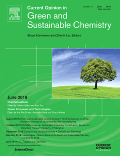
Current Opinion in Green and Sustainable Chemistry
Scope & Guideline
Driving Change Through Sustainable Chemical Insights
Introduction
Aims and Scopes
- Sustainable Synthesis and Processes:
The journal highlights research on sustainable methods for synthesizing chemicals, materials, and fuels, focusing on minimizing environmental impact and resource use. - Biomass and Waste Valorization:
There is a strong emphasis on converting biomass and waste materials into valuable products, exploring new pathways for waste management and resource recovery. - Green Catalysis and Reaction Engineering:
Research on catalysis that enhances the efficiency and sustainability of chemical reactions is a core area, including studies on biocatalysis and innovative catalytic processes. - Circular Economy and Resource Recovery:
The journal promotes research that aligns with circular economy principles, including recycling, reuse, and sustainable production methods. - Environmental Impact Assessment:
Papers often include life cycle assessments and sustainability metrics to evaluate the environmental impacts of chemical processes and products. - Emerging Technologies in Sustainable Chemistry:
The journal covers the integration of cutting-edge technologies, such as machine learning and advanced materials, in driving sustainable practices in chemistry.
Trending and Emerging
- Advanced Biocatalysis:
The journal shows a rising trend in biocatalysis research, focusing on enzyme applications for sustainable chemical synthesis and waste valorization. - Carbon Capture and Utilization (CCU):
There is an increasing emphasis on technologies for capturing and utilizing carbon dioxide, reflecting global efforts to mitigate climate change. - Hydrogen Production and Storage:
Research on green hydrogen production methods, including electrolysis and biogenic approaches, is gaining traction as a key area for sustainable energy. - Circular Economy Innovations:
Topics related to innovations that facilitate circular economy practices, such as waste-to-resource conversion and sustainable product design, are increasingly prominent. - Sustainable Materials Development:
Emerging research on the development of sustainable materials, including bio-based polymers and composites, is trending, driven by the need for eco-friendly alternatives. - Integration of Artificial Intelligence in Chemistry:
The application of AI and machine learning in optimizing chemical processes and sustainable practices is a new and rapidly growing area of interest.
Declining or Waning
- Traditional Chemical Processes:
Research related to conventional chemical synthesis methods is declining as the focus shifts towards greener alternatives and more sustainable practices. - Non-renewable Resource Utilization:
There is a noticeable reduction in papers discussing the use of fossil fuels or non-renewable resources, as the journal increasingly emphasizes renewable feedstocks. - Basic Research on Legacy Pollutants:
Studies that solely address legacy pollutants without a sustainable remediation context are becoming less frequent, as the journal seeks more innovative and forward-looking solutions. - Single-use Plastics and Packaging:
Research focusing solely on single-use plastics is waning, with a shift towards solutions that integrate recycling and sustainable alternatives. - Conventional Waste Treatment Methods:
Papers centered on traditional waste treatment methods are less common as the journal promotes innovative and sustainable approaches to waste management.
Similar Journals
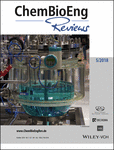
ChemBioEng Reviews
Transforming Ideas into Bioengineered SolutionsChemBioEng Reviews is a premier academic journal dedicated to advancing the fields of biochemistry, bioengineering, and chemical engineering. Published by WILEY-V C H VERLAG GMBH, this journal serves as an essential platform for researchers and professionals seeking to disseminate groundbreaking insights and innovations. With a remarkable impact factor and a solid reputation, it is ranked in the top quartile (Q1) across multiple disciplines, including Biochemistry, Bioengineering, and Industrial and Manufacturing Engineering. The journal's comprehensive scope covers the synthesis, analysis, and application of bioengineered solutions, making it a vital resource for anyone involved in process chemistry and technology. With an unwavering commitment to high-quality scientific discourse from 2014 to 2024, ChemBioEng Reviews is not only pivotal for the academic community but also contributes to industry advancements in filtration, separation processes, and the intersection of chemical and biological engineering.
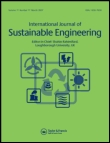
International Journal of Sustainable Engineering
Connecting research and innovation for a greener tomorrow.Welcome to the International Journal of Sustainable Engineering, an esteemed publication within the field of engineering, dedicated to advancing the principles of sustainability in design and technology. Published by Taylor & Francis Ltd, this Open Access journal, available since 2022, provides a platform for high-quality research that addresses the challenges of sustainable engineering across diverse sectors. Based in the United Kingdom, the journal enjoys a distinguished reputation, reflected in its impressive Q1 status in the Engineering (miscellaneous) category and a notable Scopus rank of #35 out of 307, placing it in the top 88th percentile of its field. With a timeline of publications from 2008 to 2024, the International Journal of Sustainable Engineering serves as a vital resource for researchers, professionals, and students seeking to engage with innovative solutions that promote sustainability in engineering practices. We invite you to contribute to this critical discourse and explore the wealth of knowledge presented in our journal.
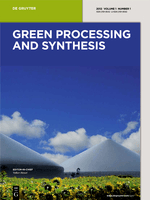
Green Processing and Synthesis
Leading the Charge in Green Technology ResearchGreen Processing and Synthesis, published by DE GRUYTER POLAND SP Z O O, stands as a vital open-access journal in the realms of Chemical Engineering, Environmental Chemistry, Fuel Technology, and more since its inception in 2012. With an impressive impact factor and currently ranked in the Q2 category across multiple domains, this journal plays a key role in disseminating cutting-edge research that addresses global sustainability challenges. The journal emphasizes innovative methodologies and sustainable practices that are crucial for advancing green technologies. Researchers, professionals, and students alike are encouraged to explore its extensive archive and contribute to the evolving conversation around environmentally conscious processing and synthesis techniques, all accessible freely since 2019.
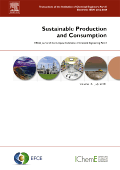
Sustainable Production and Consumption
Innovating Pathways to Sustainable LivingWelcome to Sustainable Production and Consumption, a premier journal published by Elsevier in the vibrant field of sustainability and environmental science. With an ISSN of 2352-5509, this journal has established itself as a leading platform for innovative research and discourse on sustainable manufacturing, consumption practices, and environmental technologies. As evidenced by its impressive 2023 rankings—Q1 in Environmental Chemistry, Environmental Engineering, Industrial and Manufacturing Engineering, and Renewable Energy, Sustainability and the Environment—the journal ranks among the top tier of its field. Researchers and professionals alike are invited to explore the journal’s rigorous peer-reviewed articles, which aim to advance the understanding and implementation of sustainable practices across various industries. With a strong commitment to disseminating impactful research, Sustainable Production and Consumption serves as an essential resource for academics, policy makers, and industry leaders seeking to address the challenges of modern environmental sustainability.
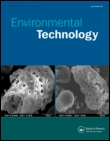
ENVIRONMENTAL TECHNOLOGY
Shaping Tomorrow’s Environmental Practices TodayENVIRONMENTAL TECHNOLOGY, published by Taylor & Francis Ltd, is a prominent journal that serves as a crucial platform for disseminating pioneering research in the multifaceted fields of Environmental Science, Water Science and Technology, and Waste Management. With an impressive record spanning over three decades from 1990 to 2024, the journal holds significant rankings in various categories, including Q3 in Environmental Chemistry and Q2 in both Medicine (miscellaneous) and Water Science and Technology for 2023. Its Scopus rankings further position it within the top tiers of Environmental Science disciplines, reflecting its influence and relevance, particularly as it pertains to pressing global environmental challenges. While the journal does not offer an open access option, it remains dedicated to advancing knowledge and promoting innovative solutions among researchers, professionals, and students engaged in environmental studies. As it continues to attract high-quality submissions, ENVIRONMENTAL TECHNOLOGY plays a vital role in shaping future research and practices aimed at sustainable environmental management.
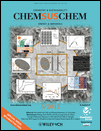
ChemSusChem
Advancing Sustainable Solutions Through ChemistryChemSusChem is a premier interdisciplinary journal, published by WILEY-V C H VERLAG GMBH, that focuses on the critical fields of Chemical Engineering, Energy, Environmental Chemistry, and Materials Science. Since its inception in 2008, the journal has consistently maintained a Q1 ranking across multiple categories, highlighting its role as a vital resource for researchers and professionals dedicated to advancing sustainable chemical processes and technologies. With an impressive impact factor, it ranks 12th in General Chemical Engineering and is highly regarded within its scopes, indicating the journal's commitment to publishing high-quality, innovative research that addresses global challenges in energy and environmental sustainability. Though it operates on a subscription model, its contributions are essential for those in academia and industry seeking cutting-edge developments in sustainable chemistry. As it approaches its convergence span through 2024, ChemSusChem continues to shape the future of sustainable chemistry, making it a must-read for students, researchers, and practitioners alike.

Sustainable Chemistry and Pharmacy
Bridging Chemistry and Pharmacy for a Sustainable TomorrowSustainable Chemistry and Pharmacy is an esteemed journal published by ELSEVIER, positioned at the intersection of chemistry and pharmacy with a robust focus on sustainability. Operating from the Netherlands, this journal serves as a crucial platform for disseminating innovative research and advanced practices in Pharmaceutical Sciences, Environmental Chemistry, and Pollution Management. With its impressive performance, it is ranked Q1 in Pharmaceutical Science and Pollution and Q2 in both Environmental Chemistry and Management, Monitoring, Policy and Law, with significant rankings in Scopus, reflecting an influential footprint in the academic community. As an Open Access subscription-based journal with a reader-friendly policy, it aims to provide researchers, professionals, and students with access to critical insights and cutting-edge methodologies that could shape future practices and policies in sustainability. Established in 2015 and projected forward to 2024, the journal plays a pivotal role in addressing contemporary environmental challenges while fostering a bridge between chemical sciences and pharmaceutical innovation.

Chemical Methodologies
Fostering Collaboration for Chemical InnovationWelcome to Chemical Methodologies, a premier journal published by SAMI PUBLISHING CO-SPC, dedicated to advancing the field of chemistry through innovative research and methodologies. With an ISSN of 2645-7776 and an E-ISSN of 2588-4344, this journal provides a vital platform for researchers and scholars to share their findings in areas encompassing physical, theoretical, and organic chemistry. Despite its initial HIndex and quartile rankings still being established, the journal's evolving impact within the academic landscape is underscored by its Scopus Ranks, which place it in the 35th percentile for physical and theoretical chemistry and the 33rd percentile for organic chemistry. Since its inception in 2022, and continuing through 2024, Chemical Methodologies aims to foster collaboration and knowledge dissemination among academics and practitioners alike, bridging theoretical concepts and practical applications. This open-access platform enhances accessibility for researchers and students worldwide, ensuring that groundbreaking contributions to chemical science reach a broad audience.
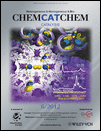
ChemCatChem
Catalyzing Knowledge in the Heart of Chemical Science.ChemCatChem is a leading international journal published by WILEY-V C H VERLAG GMBH that has been making significant contributions to the fields of catalysis, inorganic and organic chemistry, as well as physical and theoretical chemistry since its inception in 2009. With an established reputation for excellence, this journal holds commendable rankings in various categories, including Q1 in Inorganic Chemistry and Q1 in Organic Chemistry, demonstrating its pivotal role in advancing scientific knowledge and innovation. Notably, it has achieved a high Scopus ranking, securing 10th place out of 79 in Inorganic Chemistry, among others, showcasing its influence and quality. Although open access options are not available, the journal offers cutting-edge research articles, reviews, and insights that are vital for researchers, professionals, and students aiming to stay at the forefront of chemical science. With its address rooted in Weinheim, Germany, and convergence projected to continue until 2024, ChemCatChem remains a dynamic platform for disseminating vital advancements within the chemical community.
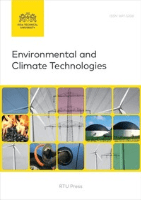
Environmental and Climate Technologies
Innovating Research for Climate Resilience.Environmental and Climate Technologies is a premier open-access journal dedicated to advancing knowledge in the fields of environmental science and renewable energy. Published by SCIENDO since 2009, this journal plays a crucial role in disseminating innovative research and interdisciplinary studies that address the pressing challenges posed by climate change and sustainable development. With its current positioning in the Q2 quartile for Environmental Science (miscellaneous) and Q3 for Renewable Energy, Sustainability and the Environment, it is recognized for its significant contributions to the academic community, ranking #107 out of 233 in General Environmental Science and #161 out of 270 in Renewable Energy. Hailing from Germany and operating under an open-access policy, Environmental and Climate Technologies ensures that research remains accessible to a global audience, fostering collaboration and discussion among researchers, professionals, and students alike. The journal invites rigorous scientific inquiries and practical solutions that can mitigate the impact of climate-related issues, making it a vital resource for those committed to environmental stewardship and sustainability.